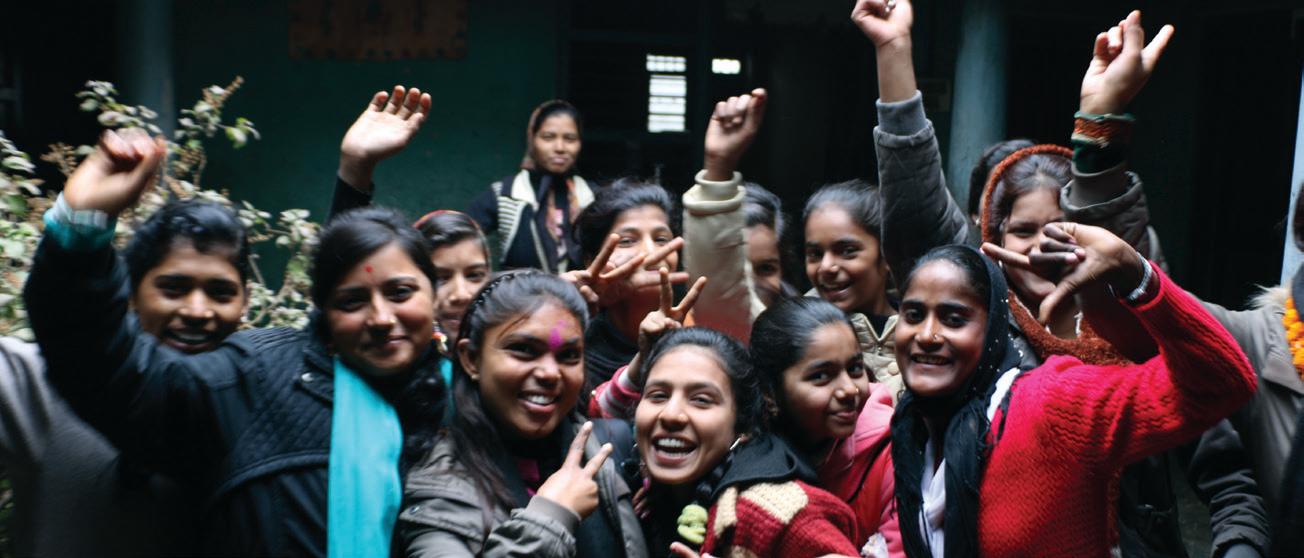
1 minute read
Women Empowerment Programme
Sustainable Development Programme
Women Empowerment Programme
Advertisement
Members of child club in Rautahat who have been campaigning against child marriage. Photo by: Prerana Marasini/Oxfam
he Women Empowerment
TProgramme’s goal is “women and girls from poor and excluded groups enjoy their rights and lead a dignified life free from violence.” This theme covers women’s political participation and transformative leadership, social inclusion, women and girls’ economic empowerment and women’s legal rights, and addressing violence against women and girls, with a particular focus on ending child, early and forced marriage (CEFM).
In the last year, the programme focused children and women’s groups and providing them with leadership skills so that they could develop themselves as community change leaders. This helped in breaking stereotypes around gender norms such as child marriages or ending violence against women. Oxfam, together with its partners, sensitized women on the impacts of violence against women and helped either to prevent it or to ensure right actions were taken when they occurred. We’ve used counselling, mediation, and referrals as steps to address cases on violence against women.
4863
women and girls got leadership and advocacy skills to stop child marriages and combat violence against women and girls
494
people aware on women’s economic rights and the government schemes on livelihoods and economic empowerment
400
women oriented on constitutional provision for women’s participation in local bodies. 125 women leaders contested for the local elections 55 women won key positions
200
At least 200 cases of violence against women addressed through counselling, mediation, and referrals
180
community discussion centers and 40 child clubs formed in four districts
58
case of child marriages prevented










